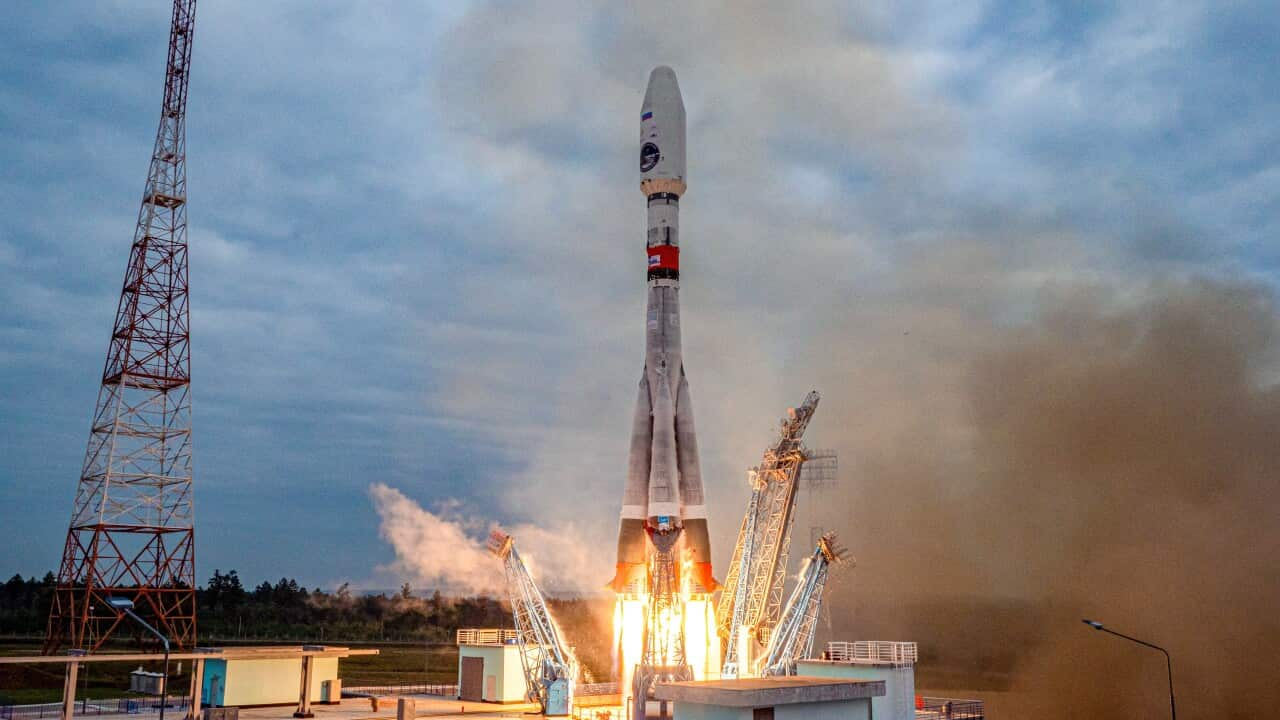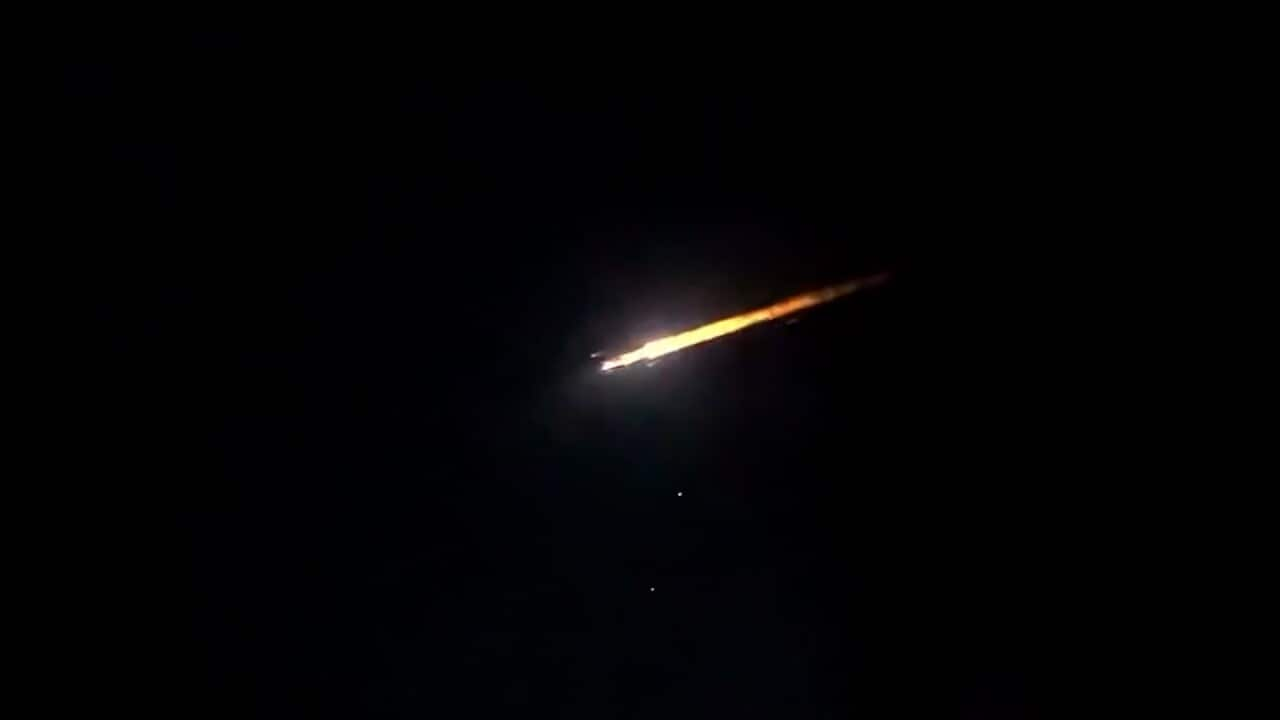Key Points
- Russia's Luna-25 spacecraft spun out of control and smashed into the Moon, the country's space corporation said.
- The craft moved into an "unpredictable orbit" and "ceased to exist as a result of a collision" with the Moon.
- The failed operation was Russia's first Moon mission in 47 years.
Russia's first moon mission in 47 years has failed after its Luna-25 spacecraft spun out of control and crashed into the moon following a problem preparing for pre-landing orbit.
Russia's state space corporation, Roscosmos, said it had lost contact with the craft at 11.57 GMT (9.57pm AEST) on Saturday after a problem as the craft was shunted into pre-landing orbit.
"The apparatus moved into an unpredictable orbit and ceased to exist as a result of a collision with the surface of the Moon," Roscosmos said in a statement.
It said a special inter-departmental commission had been formed to investigate the reasons behind the loss of the Luna-25 craft, whose mission had raised hopes in Moscow that Russia was returning to the big power moon race.
The launch of the Luna-25 was a step towards Russia's ambition of being the first country to land on the lunar south pole in the search for frozen water.
The failure underscored the decline of Russia's space power since the glory days of Cold War competition when Moscow was the first to launch a satellite to orbit the earth - Sputnik 1, in 1957 - and Soviet cosmonaut Yuri Gagarin became the first man to travel into space in 1961.
It also comes as Russia's $US2 trillion ($3.1 trillion) economy faces its biggest external challenge for decades: the pressure of both Western sanctions and fighting the biggest land war in Europe since World War Two.
Russia has not attempted a moon mission since Luna-24 in 1976 when Leonid Brezhnev ruled the Kremlin.
Luna-25 entered the Moon's orbit just before noon local time on Wednesday, Roscosmos said earlier in the week. The spacecraft was planned to circle the Moon for five days.
It was then supposed to execute a soft landing on the south pole of the Moon on Monday, according to Russian space officials. It was planned the spacecraft, which is roughly the size of a small car, would operate for a year on the Moon's south pole.
International race to find water on lunar south pole
Scientists at NASA and other space agencies in recent years have detected traces of frozen water in the south pole's craters. The presence of water on the Moon has implications for major space powers, potentially allowing longer human sojourns on the planet that would enable the mining of lunar resources.
Russia has been racing against India - whose Chandrayaan-3 spacecraft launched earlier in August and is scheduled to land on the Moon's south pole on August 23 - and more broadly against China and the United States, which both have advanced lunar ambitions.
More than a decade ago, the failure of the 2011 Fobos-Grunt mission to one of the moons of Mars underscored the challenges facing Russia's space program: it could not even exit the earth's orbit and fell back to earth, smashing into the Pacific Ocean in 2012.
Eventually, in the early 2010s, Russia settled upon the idea of the Luna-25 mission to the south pole of the moon. Luna-25 did manage to exit the earth's orbit.
But its failure means that Russia might not be the first to sample the frozen water which scientists believe the south pole of the moon holds. It was not immediately clear what long-term impact the failed mission would have on the country's moon program, which envisages several more missions in coming years.











